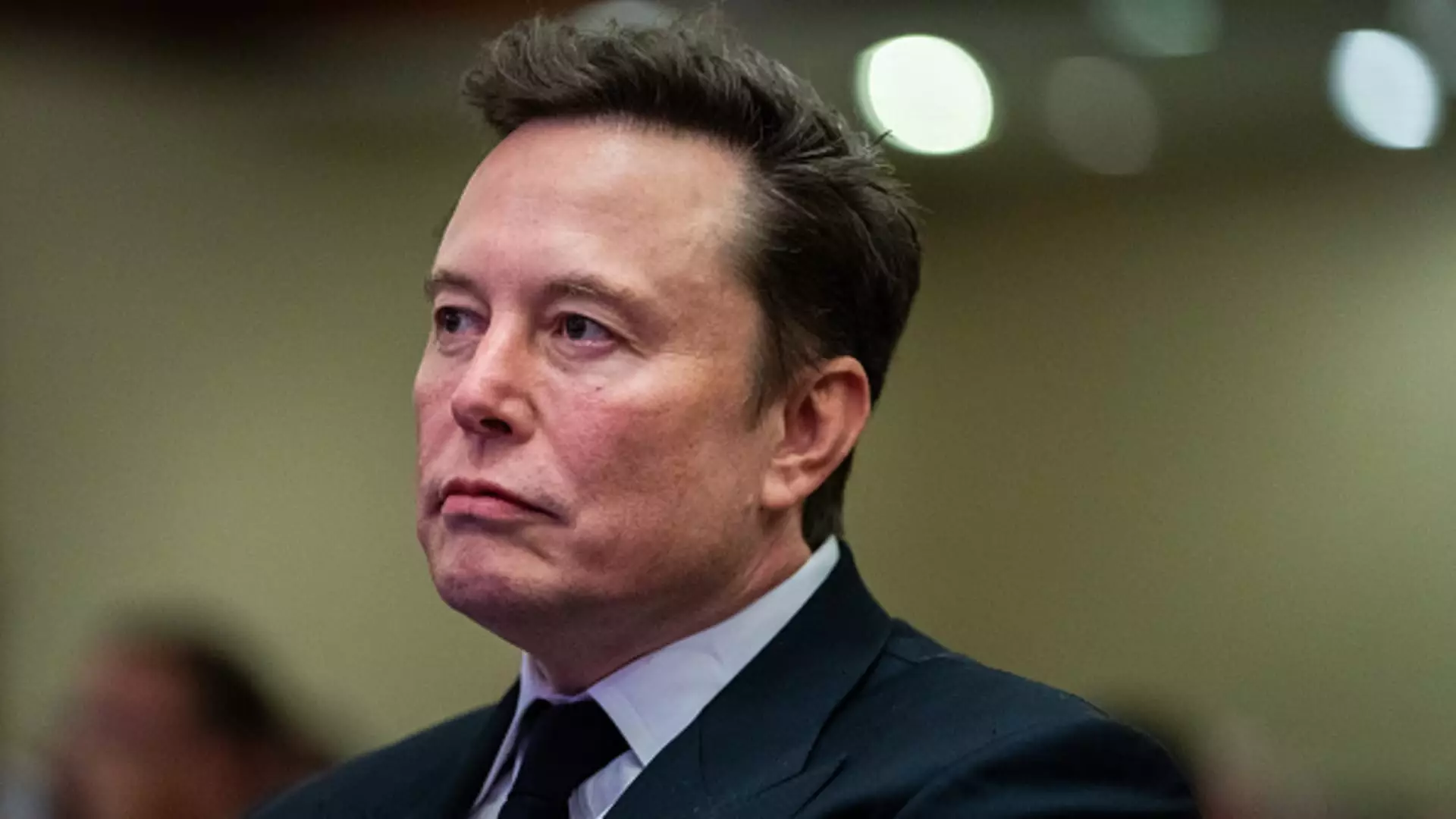The tumultuous realm of social media continues to evolve, with prominent figures like Elon Musk at the forefront. After acquiring Twitter in 2022 and rebranding it as “X,” Musk positioned himself as a champion of free speech, promising to dismantle the barriers he claimed stifled conservative voices. Yet, recent incidents have sparked a firestorm of accusations from conservative users who feel betrayed by Musk’s actions. As several right-wing accounts experienced a sudden revocation of premium features, the narrative shifted dramatically, unveiling the complexities and contradictions inherent in Musk’s advocacy for free expression.
On a fateful Friday, at least 14 conservative accounts reported losing their blue verification badges, which come with numerous perks, such as revenue-sharing and monetization opportunities. These actions did not occur in a vacuum; they coincided with a growing discourse around immigration policies, particularly as tensions rose among factions of Trump loyalists and pro-immigration advocates like Musk himself. The accounts that found themselves demoted were expressing dissenting views, critiquing Musk’s pro-immigration stance, thus raising questions about whether the algorithmic adjustments Musk discussed were also serving to censor dissent rather than promote open dialogue.
Though Musk assured his audience that the platform’s algorithm naturally curtails the visibility of those frequently muted or blocked by credible users, many interpreted this as a form of shadowbanning. This term refers to subtly limiting a user’s reach without overtly notifying them, a practice critics argue undermines platform transparency. Ironically, these very moves come from someone professing to liberate discourse, creating a paradox that continues to baffle observers.
The immediate reactions from the affected conservative accounts reflect a growing discontent within a community that previously viewed Musk as an ally. Influencer Preston Parra, representing ConservativeOG, characterized the actions of X as a “political takedown.” His combative stance illustrates a broader sentiment: that Musk’s promise of a free and open platform remains under threat by what they perceive to be tech oligarchs who traverse the line between innovation and control.
The criticism targeting Musk isn’t limited to individual users. The political implications are palpably resonated throughout various conservative circles, placing Musk in a precarious position; while aligned with some aspects of the far-right agenda, his immigration position has become a point of contention. The juxtaposition of his identity as an immigrant from South Africa and his current stances creates a narrative fraught with tension, strengthening calls from conservatives who demand unity against “Silicon Valley elites.”
Political allegiances in this digital age are anything but straightforward. Musk’s insistence on “free expression” seems to pit him against users who once hailed him for his commitment to open dialogue. As he is lambasted by some conservative factions for being a “Trojan horse” within a movement ostensibly devoted to freedom, the stakes are raised even higher. Musk, who was once heralded as an innovative disruptor, now finds himself embroiled in a political battle that he cannot easily navigate.
Moreover, the announcement of Musk and fellow tech entrepreneur Vivek Ramaswamy’s roles in Trump’s proposed “Department of Government Efficiency” further complicates the situation. As they become cheerleaders for an administration facing scrutiny from right-wing constituents, the full implications of their past and present rhetoric surrounding immigration shape the trust—or lack thereof—that their supporters afford them.
As this saga unfolds, the question remains: what does this reveal about the environment on Musk’s social media platform, X? Will it remain a space for robust debate, or will it spiral into a battleground where favoritism and animosity hinder genuine conversation? Musk’s envisioned free-speech utopia might face insurmountable challenges if users perceive their voices as increasingly vulnerable to arbitrary censorship.
The polarization of sentiments surrounding Musk and his platform highlights the difficulties of reconciling idealistic principles with pragmatic realities in the digital era. As conservatives mobilize either to challenge the actions taken against them or rally behind a figure who simultaneously embodies innovation and censorship, one thing becomes increasingly clear: the era of social media as a neutral ground for discourse is evolving, and its dynamics carry significant implications for freedom of expression in the 21st century.


Leave a Reply